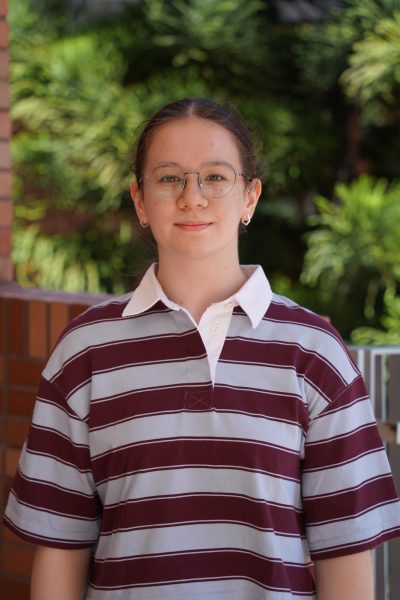This year, Taipei American School (TAS) is rolling out three new high school science courses: Introduction to Astronomy, Introduction to Astrobiology and Energy Systems.
Introduction to Astronomy and Introduction to Astrobiology
Introduction to Astronomy and Introduction to Astrobiology aim to expand TAS’s students’ worldview of science beyond Earth. Ms. Anisha Vinod, the instructor for both of these semester courses, explains that astronomy is more of a combination of physics and chemistry from the perspective of our planet and beyond, understanding cosmic phenomena, functions of the universe and its origin. Whereas astrobiology is the study of life on Earth in relation to the universe; it explores the evolution of life here, the conditions that enabled it, and uses that knowledge to speculate how life might exist beyond our planet.
These courses not only cover the history, mechanics and possibilities of our universe, but they also offer new ways to think about Earth’s issues, such as climate change. By studying similar processes on other planets, students gain insight into how these issues might impact our future.
With the support from the science department and TAS resources, Ms. Vinod and her students even have the opportunity to have night labs, using telescopes to observe the Taipei night sky.
For Ms. Vinod, astronomy and astrobiology are more than just science—they’re about expanding perspective. “This isn’t imagination. This is real…it allows your life to be so much wilder, unique, independent and real, more real than a little bubble that society creates for you,” Ms. Vinod said.
Energy Systems
Starting this school year, all incoming ninth graders are required to take Energy Systems, a new year-long course that builds students’ fundamentals in science and lab skills. The curriculum explores energy and its impact on systems of various scales, beginning with atoms, then physical interactions, ecosystems, Earth our solar system and the sun. For students pursuing an honors credit, an optional project requires building and successfully completing a year-long project that teaches somebody else about their chosen topic.
Ms. Sarah Peters, head of the science department, collaborated with colleagues and administrators to identify the essential skills students need for success in future Upper School science courses. During a school-wide curriculum review, they chose to introduce this foundational course rather than having students start directly with physics. The redesign also aligns with the Next Generation Science Standards, which are K-12 science education standards emphasizing content, problem solving and lab skills.
Beginning with the class of 2029, students will be required to complete only two out of the three: physics, chemistry and biology—in any order—to graduate. “We found that the original sequence wasn’t the best for every student,” Ms Peters explained, “so this gives kids more flexibility.” For example, a student interested in medicine might focus on biology and chemistry, while a student interested in engineering might prioritize physics and chemistry.
“I’m excited for kids to start going through the program,” she added, “I’m hoping that they’re excited about it too.”

![[PHOTOS COURTESY OF MS. VINOD]](https://blueandgoldonline.org/wp-content/uploads/2025/09/Untitled-design-1200x675.png)
![Helen Zia talks to students in the auditorium at Flex. [ANNABELLE HSU/THE BLUE&GOLD]](https://blueandgoldonline.org/wp-content/uploads/2025/09/helen-zia-1200x800.jpg)
![Mr. Sean Patella-Buckley [PHOTO COURTESY OF MR. PATELLA-BUCKELY], Mr. Yoonsoo Kang [PHOTO COURTESY OF MR. KANG], Ms. Mikayla Patella-Buckley [PHOTO COURTESY OF MS. PATELLA-BUCKLEY], Ms. Lien Martens [PHOTO COURTESY OF MS. MARTENS],](https://blueandgoldonline.org/wp-content/uploads/2025/09/teachers-1200x675.png)
![Sofia Valadao [Erin Wu/The Blue&Gold]
Erin Wu [Annabelle Hsu/The Blue&Gold]](https://blueandgoldonline.org/wp-content/uploads/2025/05/erin-sofia-pic.png)
![Dr. Simeondis, Mr. Anderson. [Annabelle Hsu/The Blue&Gold]](https://blueandgoldonline.org/wp-content/uploads/2025/05/teachers-1200x675.jpg)
![[PHOTO COURTESY OF UNCULTURED, JUNIPER AND CO.]](https://blueandgoldonline.org/wp-content/uploads/2025/05/student-businesses-1200x675.png)
![Photo of the girl's varsity badminton team [PHOTO COURTESY OF TAS ATHLETICS]](https://blueandgoldonline.org/wp-content/uploads/2025/05/BadmintonTeam-04839-1200x675.jpg)
